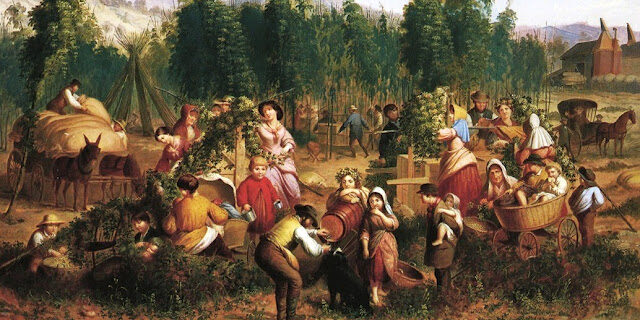The Mother Science of Democracy
Dr. Tabia Lee says she was fired this year because she was the “wrong kind of black person.” She was hired in 2021 as faculty director of the Office of Equity, Social Justice, and Multicultural Education at De Anza College in Cupertino, California. Faculty had been complaining that the office was “too woke”; she told the school in interviews she was not woke, and they hired her to lead an institutional transformation. On a December podcast, Lee said she has taught for over thirty years, including at Catholic colleges, and she has a classical, “dictionary” understanding of equity and social justice, based on fairness and equality of opportunity. What she found in her office at De Anza was very different: a hyperfocus on equality of outcomes, race and gender identities, and viewing everything through a lens of division. There was pervasive anti-American sentiment, a “power and privilege matrix,” and a mission to “de-center whiteness.” “It’s garbage in, garbage out,” she said. “We’re giving our children garbage. We’re teaching them to hate groups of people, to hate Jewish people, to hate America.” In short, Dr. Lee saw that her office was not interested in finding common ground among all students, and she refused to go along with projecting divisive “oppressor” and “oppressed” identities onto groups. In just two years, she was gone.
From the far-right obsession with blood-and-soil nationalism to the far-left obsession with race and gender, identity politics ascribes identities to people it doesn’t know or understand, blames certain identities for the victimhood of others, and pursues entitlements accordingly. Breaking the spell that identity politics holds on large segments of society requires more citizens like Dr. Lee, who not only denounce the absurdities of identity politics but articulate a truer, more exciting conception of what identity really is.
Among the most insightful philosophers on the topic of identity is the Frenchman Alexis de Tocqueville. A social scientist who toured America in the 1830s, Tocqueville has been called the greatest observer of what is unique about American life—of the American identity, one might say. He observed that democracies thrive only when citizens engage in the collective pursuit of goals through voluntary associations. Group identity formation is a natural byproduct of this process. It comes not through stamping oneself with an identity, but as an emergent property of taking real responsibility, or as Jordan Peterson puts it, “the adventure of your life.”
Tocqueville was fascinated by the ways he saw Americans creating new groups, which gave them new identities. In Democracy in America, he compared the way that societies pursue goals in French democracy and American democracy. He observed that French democracy still operated largely through the leftover structures of ancient top-down, hereditary aristocratic hierarchies, in which group identity was largely pre-formed and unchosen. Only the aristocrats—like dukes, counts, earls, and barons—held the wealth and power to bring citizens together into associations to execute big projects, like building cathedrals, palaces, and universities. The rest of society was dependent on the aristocrats, and thus obliged to cooperate with their designs. Thus the associations a citizen belongs to in aristocracy are largely a product of heredity and geographic location.
By contrast, Tocqueville marveled at how, unlike Europe, American society operated from the bottom-up. He found that Americans had a unique habit of forming voluntary associations to achieve goals that average citizens, not just aristocrats, came up with. They managed to convince fellow citizens to join in and commit to their aims, even when democracy offered everyone the freedom to stay apart. Such commitments create a new group identity, which can then be a tool for attracting more members. In fact, Tocqueville believed that this habit of forming and engaging in associations—like family, schools, churches, businesses, non-profits, and local civic groups—comprised the indispensable foundation of American democratic society:
When you allow [citizens] to associate freely in everything, they end up seeing in association the universal and, so to speak, unique means that men can use to attain the various ends that they propose. Each new need immediately awakens the idea of association. The art of association then becomes, as I said above, the mother science; everyone studies it and applies it.
For Tocqueville, the often messy, loud, and contentious operations of voluntary associations are the essential process through which Americans connect and their ever-evolving social identities take shape. Through the give and take of associational life, said Tocqueville, “Feelings are renewed, and the heart enlarged.” The very development of the human psyche and the heart, the core of one’s being, is shaped by the shared interactions that citizens in democracies create for themselves through voluntary associations.
Identities are born out of the commotion of mutual communication, effort, and risk-taking in a dynamic world never fully known or understood. Thus individual citizens do not fully know how identities of association will take shape, because they are not the sole shapers of them. In associations, we cannot know the extent to which we will be accepted by others, or how influential our opinions will be, or the degree to which our aims and efforts will align with those of the group. Moreover, identities of association mutate as groups take on new goals and discard old ones, as illustrated by the changing platforms of the Democratic and Republican parties since their inception. Identities also change as group members take on new roles in relation to each other, for example as newcomers gain experience, or as members become more educated.
By contrast, identity politics presumes to know our identity without a clue as to the ever-changing dynamics of our associational lives. This is absurd, because an identity is not something anyone can just “know.” As Jordan Peterson puts it, identity is not just in your head; it is also in the world. A person’s identity is embedded in the patterns of their relationships with different people. Identity is not simply what one thinks of oneself, or how one defines oneself, as the modern cult of identity teaches.
It is through associations that the people learn the art of governing themselves, the art of collaborating to bring great works into being.
The popularity of the notion that a person can dictate their identity is, in part, a symptom of our democratic age. It reflects the flawed tendencies of democratic thinking that Plato and Aristotle observed: When citizens are free under the law, they begin to believe the illusion that they are free in every respect, in this case free to dictate who they are. This helps to explain why schools encouraging kids to declare what they “identify as” is a wild goose chase: Identities are not created by declarations any more than declaring oneself to be a doctor makes a person a doctor. Real identity requires concordance between how a person represents themselves, how they act in the world, and—often forgotten—how the world relates to them. You can declare yourself to be a basketball coach, but until someone agrees for you to coach them, you are not a basketball coach. Living an identity involves embedding oneself in the world. It is the misplaced pressuring of kids to do the impossible, to dictate their identity without having truly lived it, that is leading to the mutilation of so many teens through transgender surgeries.
In democracies, associations are where individuals find strength. It is there that they discover how their own ideas, sentiments, and actions can make a great difference in the world. As Tocqueville observes, democracy is a DIY operation in which citizens must find their own ways to combine their energies if they hope to achieve great goals. Everyone is free and independent under the law—which sounds wonderful, except it can leave citizens disconnected, with little power on their own. The only way individuals can overcome this is to voluntarily connect.
Thus democracy can only be civilized when citizens master the art of association, says Tocqueville. But individuals in democracies cannot wait around for “the system” to dictate whom to associate with, when, and toward what aims, because there are no systems of predetermined associations, no permanent classes and ranks, no aristocrats running the show. Democracy runs on the associations that citizens freely engage in to achieve the goals they aspire to.
What if citizens choose not to engage? What if they use their freedom not to associate, but to isolate themselves from each other? Tocqueville thought this was a very real possibility:
In democratic peoples … all citizens are independent and weak; they can do almost nothing by themselves, and none of them can force their fellows to lend their cooperation. They therefore all fall into impotence if they do not learn to aid each other freely. … [And] if they did not acquire the practice of associating with each other in ordinary life, civilization itself would be in danger.
Tocqueville feared that if democracies ever lost the habit of forming voluntary associations, the result would be not aristocracy but tyranny, the tyranny of the state. Contrary to the principle of subsidiarity, under the tyranny of the state, government assumes roles better handled by voluntary associations, making individuals dependent on government. When democracies stop practicing the art of association, they lose a multitude of identities of association, as all the small links that hold society together are broken. Fragmented and isolated, citizens become weakened and unable to defend themselves from the state, and allegiance to the state becomes the central focus of group identity.
Democracies are about self-government, the rule of the demos, the people. It is through associations that the people learn the art of governing themselves, the art of collaborating to bring great works into being. And here lies one of the tragedies of identity politics: It teaches not the art of association, but the art of finger-pointing, which is anti-associational. Identity politics thus sabotages education in democratic self-government, leading to a fragmented, unproductive society. So instead of using identities to divide society, we should reject identity politics and emphasize how engaging in voluntary associations creates new group identities that can transcend immutable group markers, attract more members, and unite citizens to bring great accomplishments into the world.


